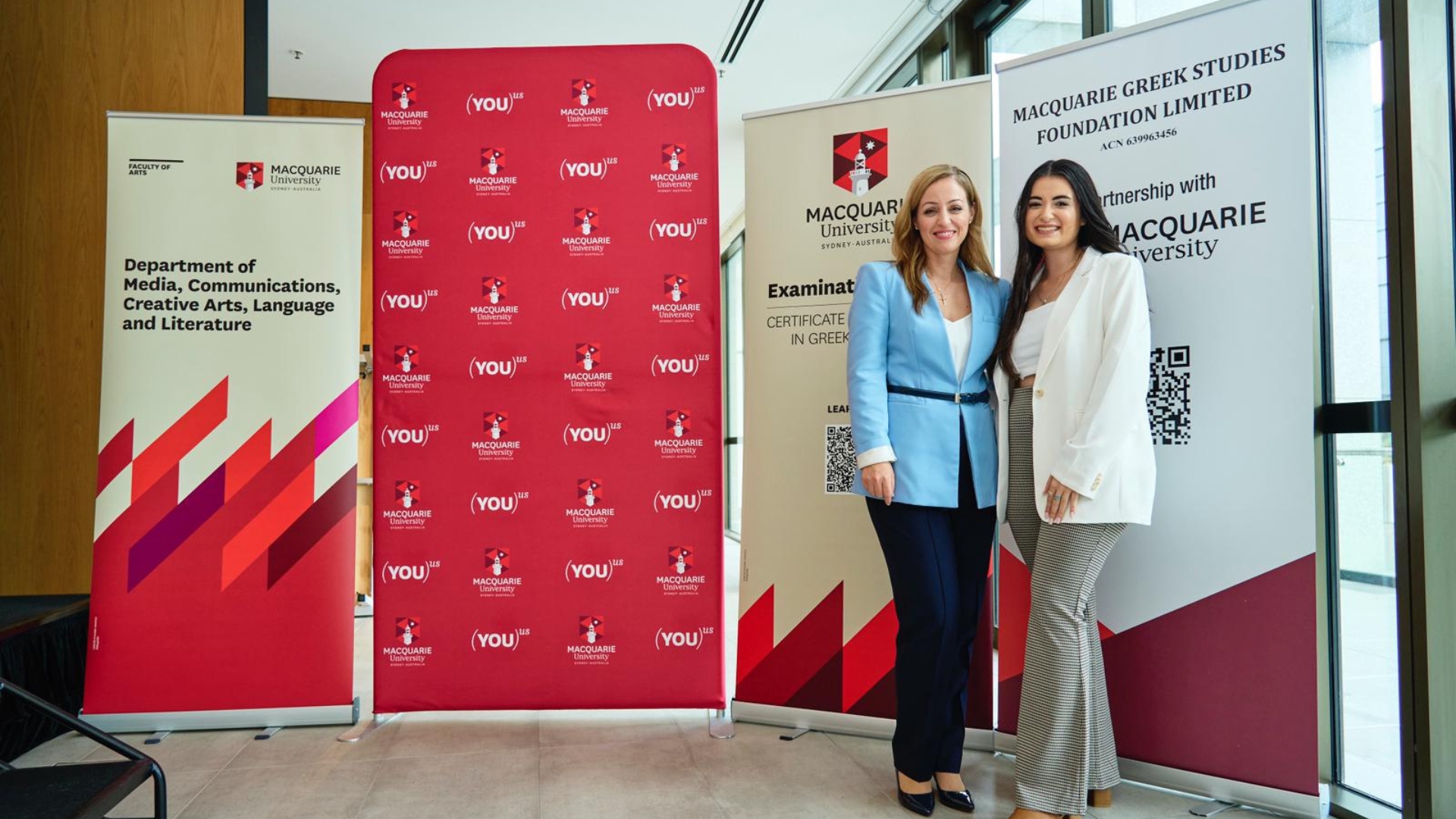As reported by The Greek Herald, the future of the Modern Greek Studies Program at Macquarie University in Sydney is at risk.
The University is considering steering away from a discipline of Languages and Cultures and wants to instead form a Discipline of Global Studies. This means language programs for Modern Greek, Croatian, German, Italian and Russian could be discontinued.
The news received a very mixed response from current and past students at Macquarie University, as well as many members of the local Greek community. A petition calling for the Modern Greek Studies Program to be saved was also launched by The Greek Herald newspaper, in partnership with the Macquarie University Greek Association (MUGA). It has received close to 3,000 signatures so far.
Since then, the Macquarie Greek Studies Foundation (MGSF) confirmed in December that it continues to hold discussions with the University over its proposal to discontinue the language course. The President of the MGSF, Theo Premetis, said a final decision on whether the Modern Greek Studies Program would be discontinued is expected to be made by the middle of 2024. New enrolments are currently taking place for the 2024 academic year.
In the meantime, The Greek Herald has decided to speak to some alumni and current students of Macquarie University to hear their thoughts on any potential changes to the Modern Greek Studies Program.
Olivia Tzakos
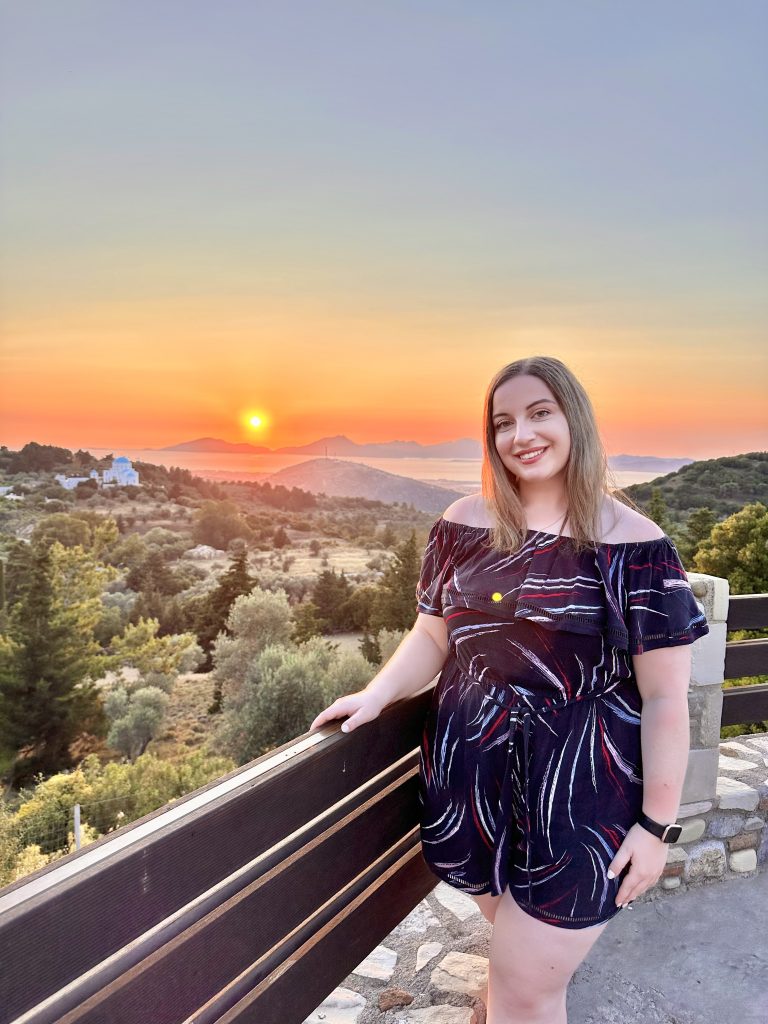
Olivia Tzakos, a 23-year-old who’s currently studying a Master of Speech and Language Pathology at Macquarie University, said having the opportunity to study the Greek language was so important to her.
“It allowed me to strengthen the connection to my cultural roots and continue keeping our beautiful language alive as a third generation Greek Australian,” Olivia said.
She had the pleasure of being taught Modern Greek by Dr Patricia Koromvokis, who she said is “one of the most inspirational academics I have come across” in her tertiary education.
“Having a lecturer who is extremely passionate about teaching the Greek language enhanced my desire and dedication towards immersing myself in the Modern Greek Studies Program,” she said.
Olivia said she’d encourage more people to do the program as “learning a second language provides significant employment opportunities and improves one’s ability to converse within cultural contexts.”
“Having learnt Greek as a second language is advantageous for me professionally as I intend to enter the field of speech pathology after I finish my studies,” she added.
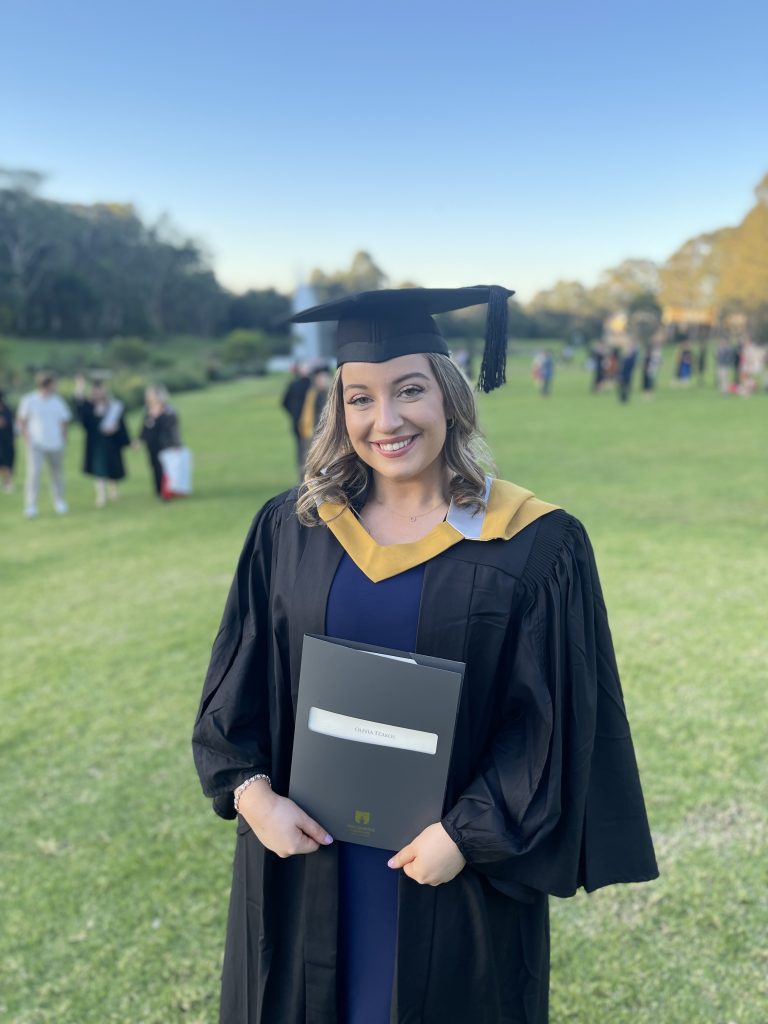
She was devastated to hear that the Modern Greek Studies Program at Macquarie may be in jeopardy.
“To think that the future of the Greek language could be at stake is even more upsetting as it greatly affects learning and employment opportunities for students, as well as future generations within the Greek community,” she said.
The 23-year-old said it was important to her to keep the Greek language alive in Australia.
“I hope that everyone rallies behind the continuation of Modern Greek Studies at Macquarie University as I believe it is of utmost importance to spread and maintain one of the world’s oldest languages in order to preserve and celebrate our Greek identity and culture,” she concluded.
Samuel Giovas
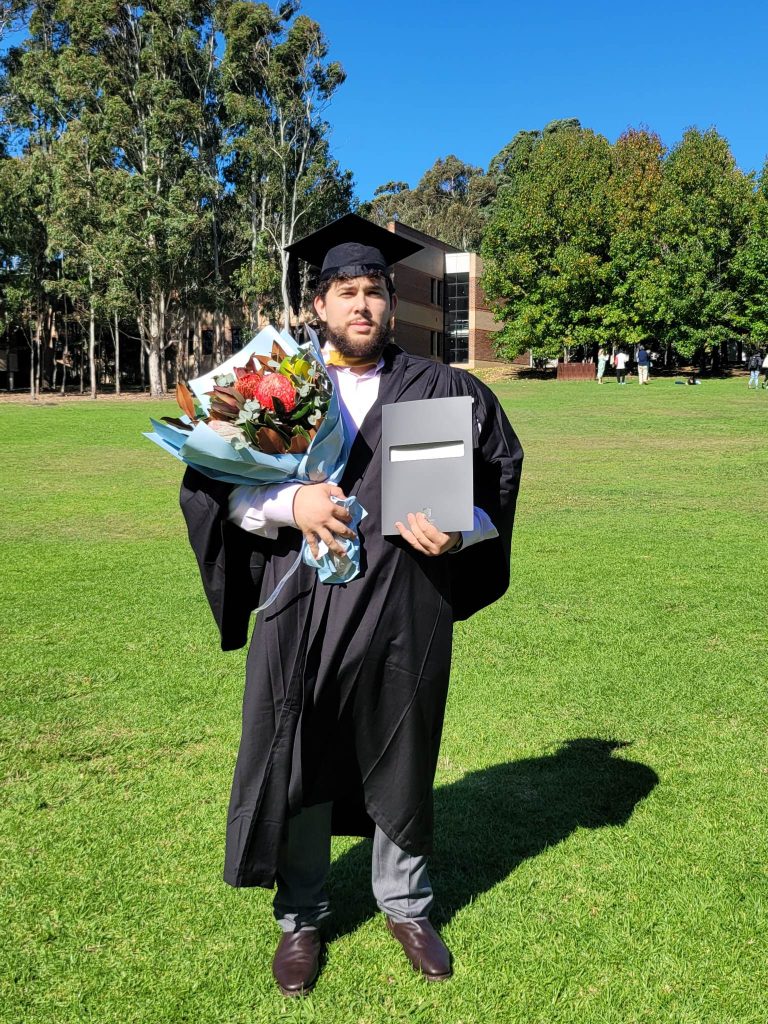
Samuel Giovas, a 22-year-old graduate who just completed his Bachelor of International Studies last year, said he specialised in Modern Greek.
“One of the highlights of my time at Macquarie includes being involved in MUGA and just being involved with the Greek community,” he said.
“I also had a great teacher, Dr Koromvokis and she made the course really enjoyable. To be able to learn the Greek language and understand it better was also a great outcome of the course.”
Samuel said after finding out the Greek course may be discontinued, many students emailed MUGA, outlining how they want to study Greek and how they’re really sad to hear the course might be discontinuing.
“I think learning language, especially one with a long history such as Greek, is really important and we need the ability to be able to do it,” he said.
“Also, with the development of Artificial Intelligence (AI) in the current and very sudden future, it won’t be able to replicate language, and so it’s something with so many benefits that needs to be taught and continue to be taught in institutions such as universities.”
Alexia Nastatos

Alexia Nastatos is another former student who “absolutely LOVED” the course.
“I didn’t elect to study Greek until my last year, as I had a few spare electives, and oh my goodness, I wished I’d done it sooner,” she said.
The 24-year-old Macquarie University graduate said she loved being able to reconnect with her culture through language.
“It gave me the opportunity to be taught by Patricia Koromvokis! Not only is she an amazing lecturer and teacher, but I had actually been wanting to be taught by her for years. I also got the chance to meet some amazing people,” Alexia said.
“It’s a way of connecting with your culture through the language and keeping it alive within Australia. Past generations have fought so vigorously to keep the Greek language and culture alive for future generations, so I see studying the course as a way of honouring that.
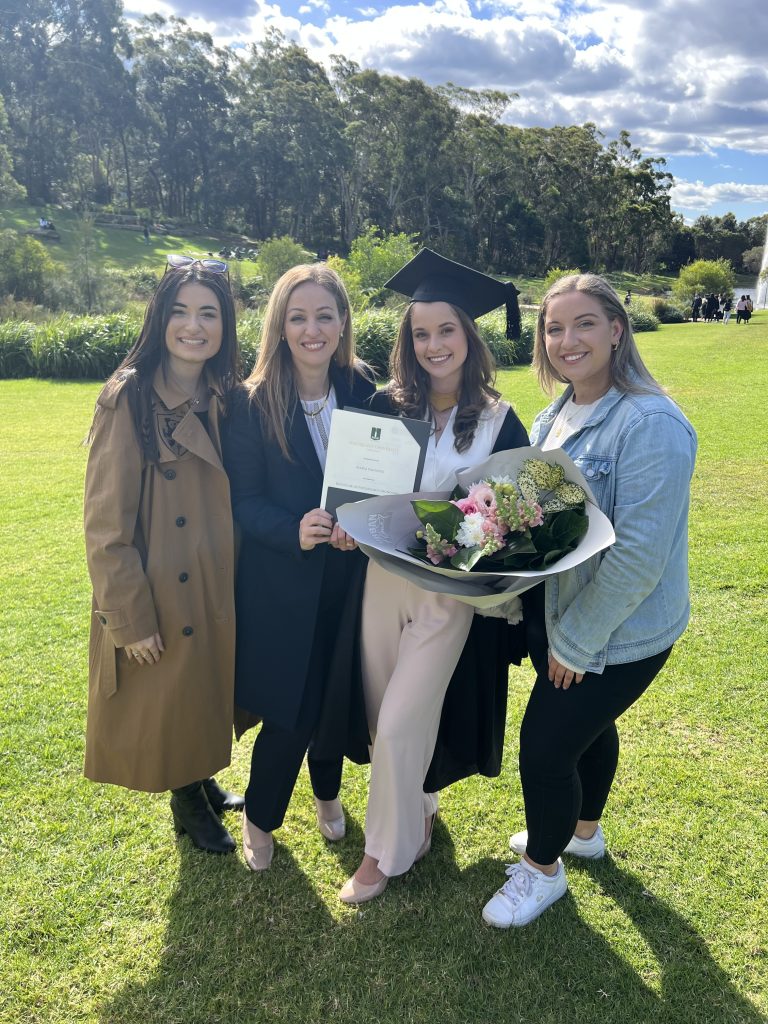
“For those who don’t have a Greek background, it doesn’t matter! Give yourself a challenge, meet some amazing people, and learn a beautiful language.”
The 24-year-old said she was quite saddened to hear the course may not be offered anymore.
“As a language with such a long history, from a culture with deep roots, I struggle to understand why this language should be discontinued,” she said.
“Why shouldn’t the interested mind, or the person with Greek heritage, be given the chance to study Greek? Learning a language can open so many doors for people, and why shouldn’t Greek be one of those languages for university students?”
Doris Damoulakis
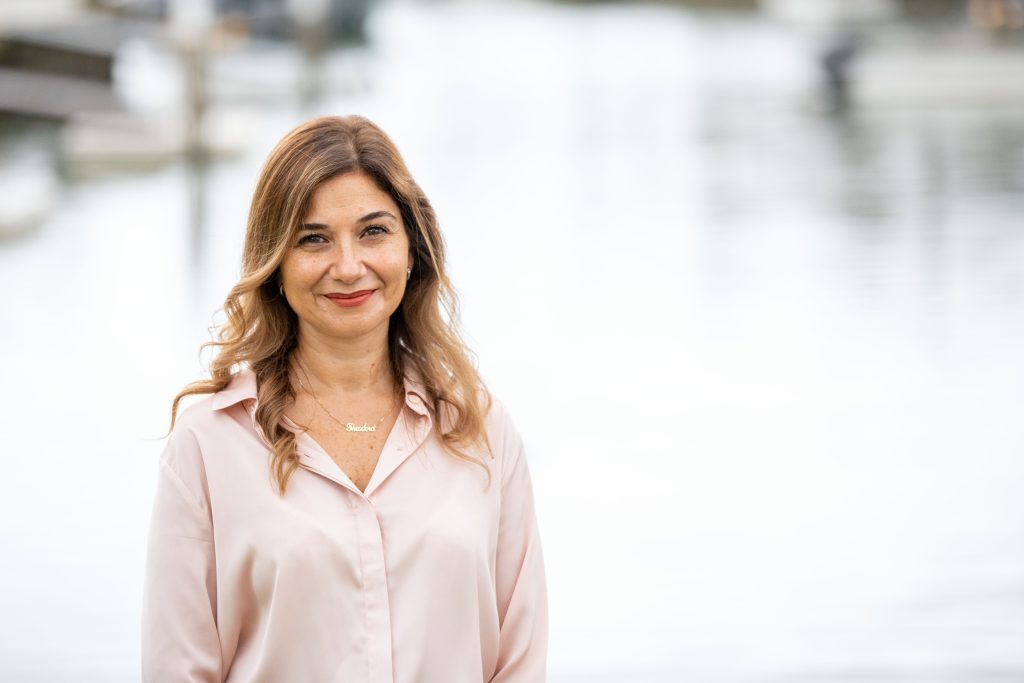
Doris Damoulakis, a Clinical Psychologist of 20 years and former Macquarie student who studied the course, said she had an excellent experience.
“My first teacher was Vasilis who was followed by Dr Elizabeth. They were both passionate, knowledgeable, invested and relentless in their goal to make the Greek language something that was accessible to all students who wanted to learn and connect with the Greek language,” she said.
“I got to learn about the Greats of Greek literature, poetry, philosophy, psychology as well as the historical events that have shaped Greece and their impact on the world.
“It also enabled me to cruise through aspects of my psychology degree because names of certain conditions and medical terms are actually Greek words and so it made my studies easier.”
She said as Australia is such a multicultural country built on a rich tapestry of cultures, languages, foods, identities, and ways of life, discontinuing Greek studies “goes against and denies our way of life.”
“This is not acceptable for Greek studies or any language for that matter. Students should be able to have the choice to study their language in tertiary settings,” she said.
“If we start pulling Greek out of one university, which will be next? When will it end?”
Parisa Marathos (Marathocabitis)
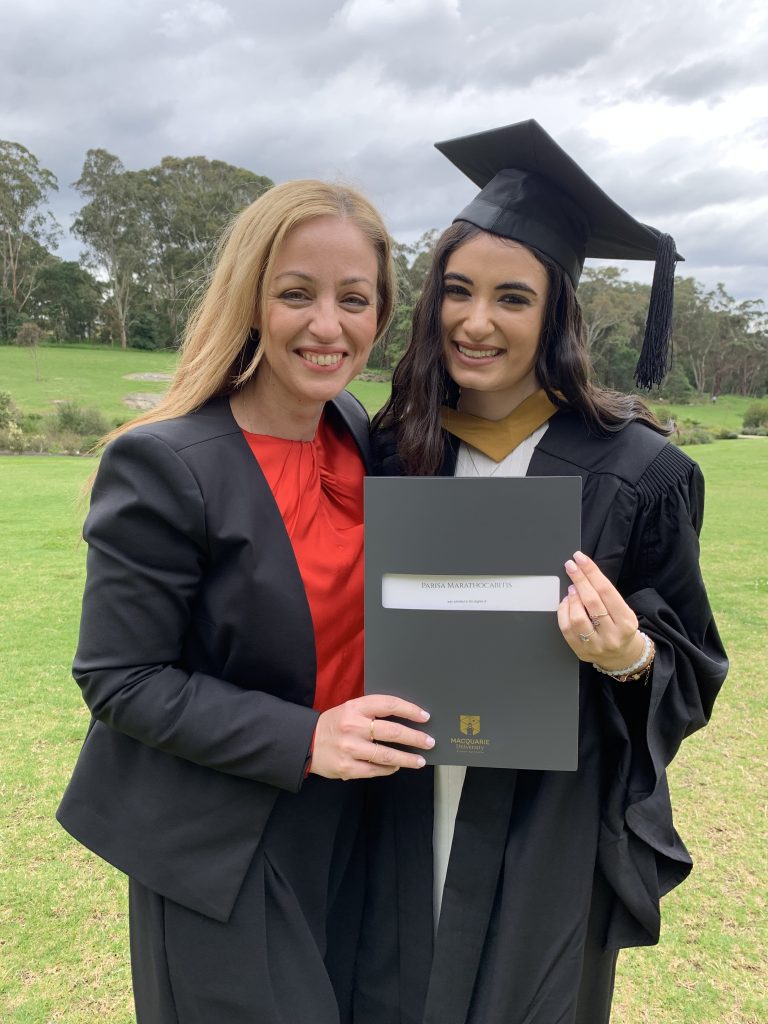
Parisa Marathocabitis, a 25-year-old Bachelor of Arts (major in music) /Bachelor of Education (Primary) graduate of Macquarie University, said speaking Greek has always been incredibly important to her.
“It became instrumental throughout my degree when I was asked to represent MUGA and the Combined University Greek Association (CUGA) by reciting poems in Greek for the commemoration of the Athens Polytechnic Uprising in 1973 (Το Πολητεχνειο) in both 2019 and 2020,” Parisa said.
Parisa said studying modern Greek at Macquarie reminded her of her passion to uphold the Greek culture and language, “as well as its values, its history, its richness.”
“Sitting in the tutorial rooms being taught by the outstanding Dr Patricia Koromvokis, truly gave me a sense of inspiration and a feeling of privilege knowing that by choosing to study modern Greek made a huge impact in the course being still available to continue to study in the 21st century at a tertiary level,” she said.
She said undertaking the course was also “an incredibly fulfilling cultural experience.”
“You’re able to learn a new skill in learning a new language at a tertiary level, especially if you haven’t had the opportunity to experience this before,” Parisa explained.
“Studying Modern Greek at a tertiary level at Macquarie truly was a highlight of my entire degree.”
Parisa said if the course is not saved, “tertiary programs truly are going backwards in not offering to learn languages in the 21stcentury in the Faculty of Arts.”
“People who value and cherish what Modern Greek means to them like myself, would go to no end in making the course available for the next generation to study, to continue the passion, the history, the richness and love for one of the most incredible languages in the world,” she said.
James Adonopoulos
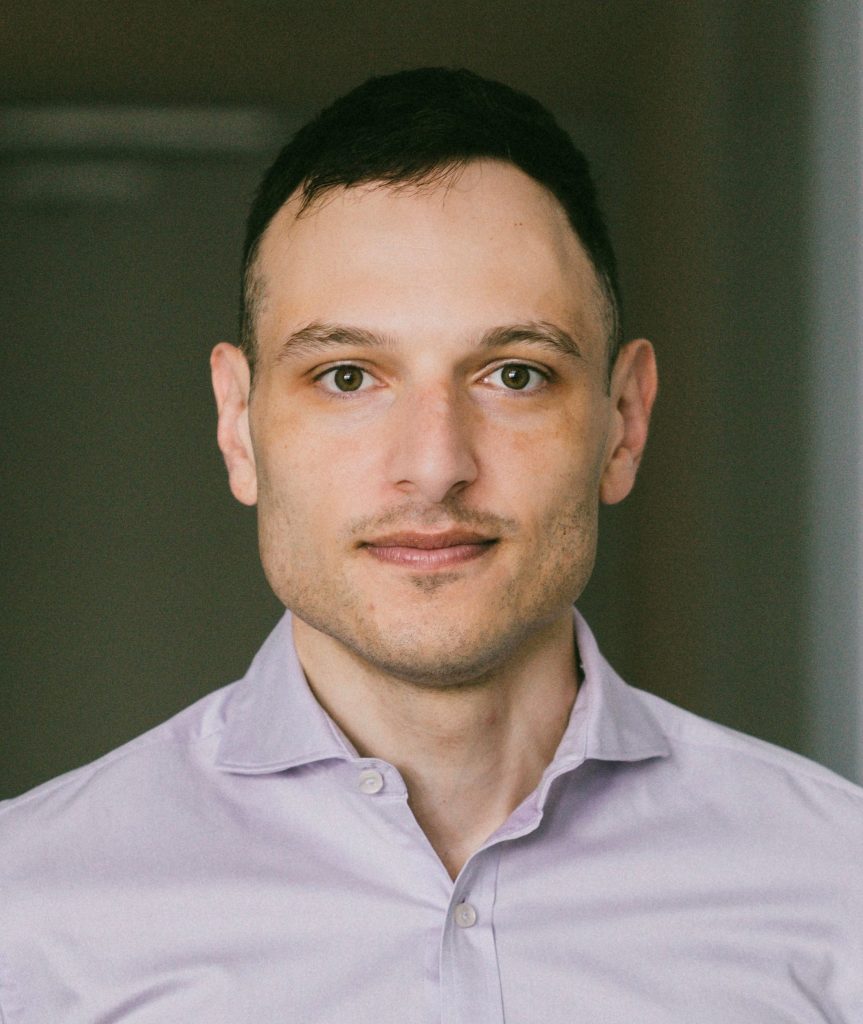
James Adonopoulos, a 44-year-old Academic Dean of Kaplan Business School, said he chose to study Modern Greek at Macquarie, “not only because it’s one of the very few universities at which it’s still taught, but also because of Macquarie’s world-class online delivery.”
He said as a “profoundly proud Hellenophile” his entire adult life, it was special for James to study Modern Greek at Macquarie as “it’s so much more than just the deeper learning of a beautiful language.”
“It’s everything else I’ve additionally learnt as a by-product of this process – the culture, the history, the music, the country, the people, the customs, the food, the politics – all of it thanks to the engaging curriculum,” he said.
James said if you’re of Greek ancestry, nothing prepares you for how fulfilling and life-enriching it is to learn the Greek language.
“It will instil in you, just like it did in me, an even stronger appreciation of our ancestors’ unparalleled contribution to the world we know today,” he explained.
“But there are benefits even to people of other cultures because it simultaneously engenders a greater understanding of science, philosophy, ethics, linguistics – and that’s in addition to how much easier it becomes to travel around one of the most breathtaking countries on this planet – a place tourists rarely visit only once.”
James said saving the Greek language course at Macquarie was about more than just the Greek diaspora and preserving the opportunity for second and third generations of Greek Australians to study it.
“This is also fundamentally about the need for Macquarie University to continue delivering with its renowned excellence a course that by its very existence recognises the influence of Greece on the Australian way of life, with architecture, business, sport, festivals, government and cuisine a few of the sectors that have been most positively influenced,” he said.
